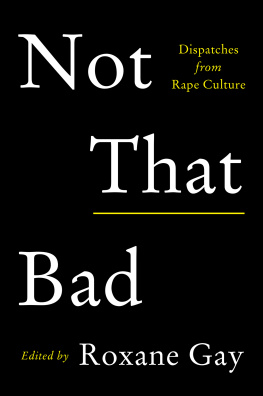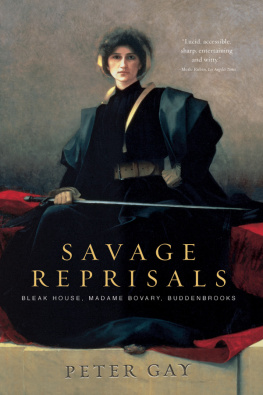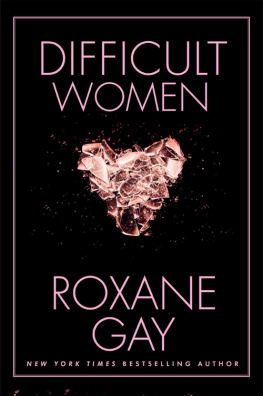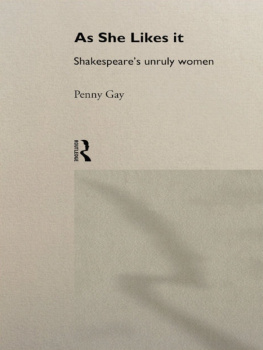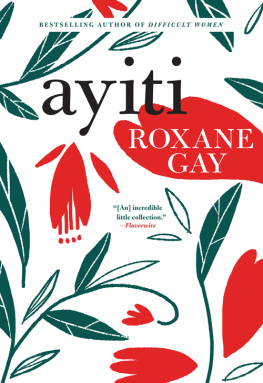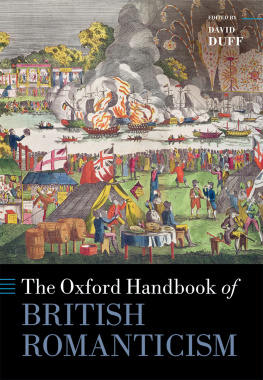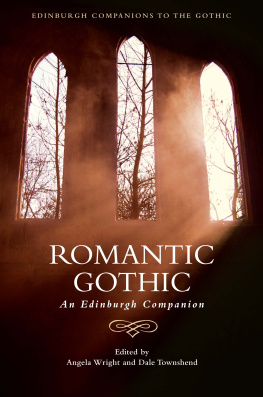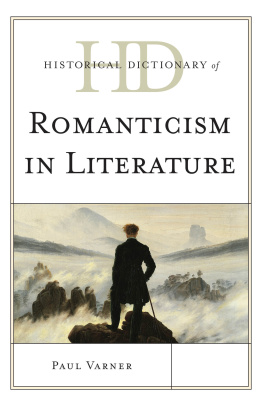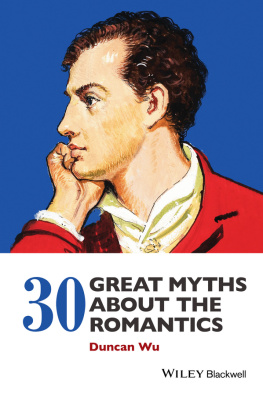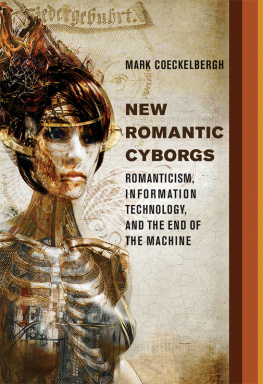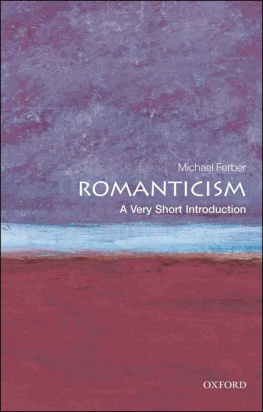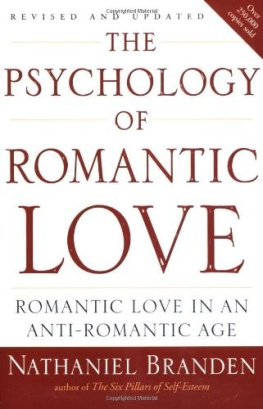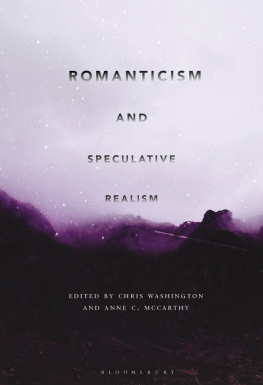why the romantics matter


Copyright 2015 by Peter Gay. All rights reserved. This book may not be reproduced, in whole or in part, including illustrations, in any form (beyond that copying permitted by Sections 107 and 108 of the U.S. Copyright Law and except by reviewers for the public press), without written permission from the publishers.
Why X Matters and the yX logo are registered trademarks of Yale University.
Published with assistance from the Louis Stern Memorial Fund.
Yale University Press books may be purchased in quantity for educational, business, or promotional use. For information, please e-mail sales.press@yale.edu (U.S. office) or sales@yaleup.co.uk (U.K. office).
Set in Adobe Garamond type by Integrated Publishing Solutions, Grand Rapids, Michigan. Printed in the United States of America.
Gay, Peter, 1923, author.
Why the romantics matter/Peter Gay.
pages cm(Why x matters)
Summary: With his usual wit and lan, esteemed historian Peter Gay enters the contentious, long-standing debates over the romantic period. Here, in this concise and inviting volume, he reformulates the definition of romanticism and provides a fresh account of the immense achievements of
constitutes a continuation of the copyright page.
also by peter gay
Modernism: The Lure of Heresy, from Baudelaire to Beckett and Beyond
Savage Reprisals: Bleak House, Madame Bovary, Buddenbrooks
Schnitzlers Century: The Making of Middle-Class Culture, 18151914
Mozart
My German Question: Growing Up in Nazi Berlin
The Bourgeois Experience: Victoria to Freud, 5 volumes
Reading Freud: Explorations and Entertainments
The Freud Reader, edited
Freud: A Life for Our Time
A Godless Jew: Freud, Atheism, and the Making of Psychoanalysis
Freud for Historians
Freud, Jews, and Other Germans: Master and Victims in Modernist Culture
Art and Act: On Causes in HistoryManet, Gropius, Mondrian
Historians at Work, edited, with Gerald J. Cavanaugh, 4 volumes
Style in History
The Enlightenment: A Comprehensive Anthology, edited
Modern Europe
The Berlin-Jewish Spirit: A Dogma in Search of Some Doubts
The Columbia History of the World, edited, with John A. Garraty
The Bridge of Criticism: Dialogues Among Lucian, Erasmus, and Voltaire on the Enlightenmenton History and Hope, Imagination and Reason, Constraint and Freedomand on Its Meaning for our Time
The Enlightenment, an Interpretation, 2 volumes
Deism
Weimar Culture: The Outsider as Insider
Age of Enlightenment
A Loss of Mastery: Puritan Historians in Colonial America
John Locke on Education, edited
The Party of Humanity: Essays in the French Enlightenment
Voltaires Philosophical Dictionary, translated
Voltaires Politics: The Poet as Realist
The Dilemma of Democratic Socialism: Eduard Bernsteins Challenge to Marx
In loving memory to my friends
Bella Berson Bede Hofstadter
Richard Kuhns Gladys Topkis
Henry Roberts Henry Turner Bob Webb
and to my cherished niece, Julia Boltin
contents
prologue
My first lasting encounter with romanticism goes back to my days as a graduate student at Columbia University. Members of a small tribe of prospective political scientists (my departments old-fashioned, a little grandiose name then was Public Law and Government), smart, hopeful, yet almost pathologically pessimistic about our chances for advancement, we served in popular offerings, teaching basic courses in American government and, even more prominently, in a famous Columbia specialty, required for all freshmen, Introduction to Contemporary Civilization (universally known as CC). It was the core of what Columbia-trained educators praised as the presumably inimitable liberal education awaiting those fortunate enough to be admitted to the four-year intellectual banquet that was Columbia College. And in this feast, romanticism would play an unexpectedly central part.
CC was severely historicist (we liked to call it, with a touching plea for relevancy, From Plato to NATO), and, as its chapters traversed the centuries with mighty steps, we tried not to slight the major epochsthe Greeks, the Romans, the Christian Middle Ages, the Renaissance, and morethat had made us what we are today. We knewit was a cherished ingredient in our CC ideologythat accounts of the living past were open to revision, that none of the accepted interpretations was sacred. We were in fact so history-minded that we institutionalized our skepticism with weekly lunches, designed for the most part to assault our classroom certainties. And those lunches, those investigating the century and a half from around 1700 to the mid-nineteenth century, were among the most controversial. We could all agree, no matter what specialty we brought with us, that there was, say, roughly covering the eighteenth century, a powerful innovative movement called the Enlightenment, followed by a vehement cultural eruption best known as the romantic Reaction. The two, Enlightenment and romanticism, were consequential intellectual currents fully understandable only after the latter had been securely identified as a response to the former. There was, we believed, a kind of symmetry between the two that could only ease the work of teacher and student alike.
Ease it, so some doubtful participantsincluding meheld, too much. The summary notion of action and reaction was evidently too simple, even mechanical. There were romantics, we discovered, who did not know that they belonged to a massive act of rejection. There were enlightened philosophes who had as much passion for passion, praised the imagination as highly, as the most romantic of romantics. More, the very notion of a unified cluster of ideas collectively known as romanticism seemed excessive: if there were German romantics and French romantics, they did not start from the same initial impulse, did not develop the same cultural expressions in their literature and their art. Would it be rational, some of us conjectured, that the only sound way to think about romanticism was to consider it as a plural which had, in the hands of great simplifiers, been shorn of its final and necessary multiplicity?
Lively as our debates were, they did not generate a wholesale revision of the CC course. But I discovered through my scholarly interests, progressively concentrating on the decades of the Enlightenment, that however plainly the romantics of any age and origin basically accepted one anothers premises, each of them had his, and sometimes her, own characteristic way of thinking and speaking. Only both an individualistic and a collectivist interpretation could do justice to the assortment of ideas that we were so navely throwing into that single basket labeled romanticism. Perhaps it was best to think about representative figures in these decades as members of families, with fundamental shared values and, at the same time, unique qualities. And if one could think of the eighteenth-century philosophes as a family, so one might consider the novelists and painters and critics in the romantic age as a set of families, quarrelsome perhaps but essentially expressive of some unmistakably shared features.
Next page


